In facing challenges from Beijing, Taipei is strengthened by its capacity to develop deep, strong, enduring partnerships with key countries around the world. These partnerships often are nurtured by shared democratic values, but they are fundamentally propelled forward by shared interests, writes Ryan Hass. This piece originally appeared in the Taipei Times.
As images of Russian brutality against innocent Ukrainians shock the conscience of the world, there is a natural impulse to frame the struggle in Europe as part of a global contest between democracies and autocracies. Taiwan’s leaders would be wise to restrain those impulses. Drawing analogies between Ukraine today and Taiwan tomorrow risks generating more costs than benefits for Taiwan’s future.
Yes, Taiwan faces a serious and growing threat from the People’s Republic of China. China’s leaders provide regular reminders of their bloody-minded determination to annex Taiwan. Chinese fighter jets and naval vessels exercise their capabilities near Taiwan with growing frequency and audacity. Chinese diplomats are becoming more brazen in their efforts to thwart Taiwan’s international space and deny the Taiwan people the dignity they deserve on the world stage. Beijing actively obstructs Taiwan’s efforts to enter regional trade blocs as it seeks to push Taiwan to integrate its economy more with the mainland and less with the rest of the world. Chinese efforts to interfere in Taiwan’s political system also are well-documented.
Taiwan’s leaders do not need to carry too heavy of a burden in drawing attention to the threats Taiwan faces, though. Beijing’s bullying already is doing the job of raising global awareness. A growing chorus of countries and regional groupings, such as the G-7 and the Quad countries (Australia, India, Japan, and the United States), have been raising their voice about the importance of preserving peace in the Taiwan Strait.
In facing challenges from Beijing, Taipei is strengthened by its capacity to develop deep, strong, enduring partnerships with key countries around the world. These partnerships often are nurtured by shared democratic values, but they are fundamentally propelled forward by shared interests.
The drafters of the Biden administration’s Indo-Pacific Strategy understood this imperative for grounding America’s approach to the region in tangible interests. The Biden team could have written a strategy focused on China, or on the global contest between democracy versus autocracy, but they wisely understood that such an approach would have limited appeal in the region. Instead, the Biden administration recognized that America needs to attract coordination and contribution from partners to advance its vision for an open, connected, prosperous, secure, and resilient region. Thus, through its Indo-Pacific strategy, Washington designed as big a tent as possible for as many countries as possible to feel comfortable working alongside the U.S.
In other words, the broad trendline of American policy in Asia is toward generating collective capacity to confront common problems, including with countries like Vietnam, who are strategically important but non-democratic. This trendline often is obscured by headlines around President Joe Biden’s views on the sharpening struggle between democracies and autocracies.
The truth is that President Biden is comfortable holding seemingly contradictory thoughts at once. He is capable of channeling his deep reservoirs of sympathy and emotion into the most powerful language he can reach, which often leads him toward ideologically infused rhetoric. At the same time, Biden also is practiced at making cold-eyed calculations about America’s national interests. He did so in deciding upon America’s withdrawal from Afghanistan. He similarly has imposed discipline about limiting risk of direct conflict between American and Russian forces in Ukraine.
President Biden will continue to talk about an intensifying global struggle between democracies and autocracies, and at the same time, the United States will continue to work with illiberal states when it serves American interests to do so. America is not going to limit its capacity to cooperate with non-democratic states on pressing challenges, and neither should Taiwan.
The coming months and years likely will demand greater coordination between democratic and non-democratic states, not less. The world is confronting conflict, economic shocks, and a continuing pandemic. Given the scale of these foreseeable challenges, the opportunity cost of splitting the world into rival democratic and authoritarian blocs is high and rising.
The growing strain on the global economy should lend greater global awareness to the importance of preserving Taiwan’s security. Taiwan is arguably the most critical node in global supply chains, accounting for 92% of global production of semiconductor process nodes below 10 nanometers. Major semiconductor companies like TSMC and MediaTek are trusted by international markets and are viewed as critical to the healthy functioning of the global economy.
Drawing analogies between Taiwan and Ukraine, on the other hand, spooks investors, compels caution about Taiwan in corporate boardrooms, and ultimately generates pressure for countries to de-globalize by re-shoring more production from Taiwan as a hedge against risk of Chinese invasion. All these reflexes run counter to Taiwan’s long-term economic interests.
President Tsai Ing-wen has provided calm, steady leadership through previous crises, including most recently during the COVID-19 pandemic. Those same skills will need to be summoned again to guide Taiwan through this current period of global turbulence. In so doing, President Tsai and her advisors can place Taiwan in a stronger position by emphasizing Taiwan’s central contributions to global economic growth, its generous responses to global challenges, and its geostrategic significance than by stressing Taiwan’s role in a global contest between democracy and autocracy.
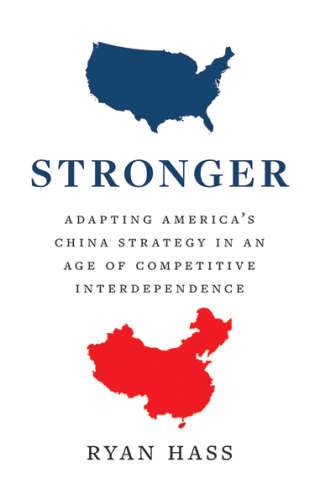
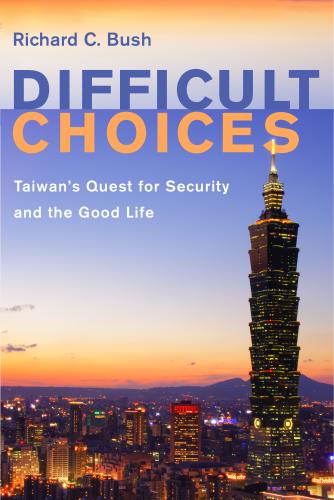
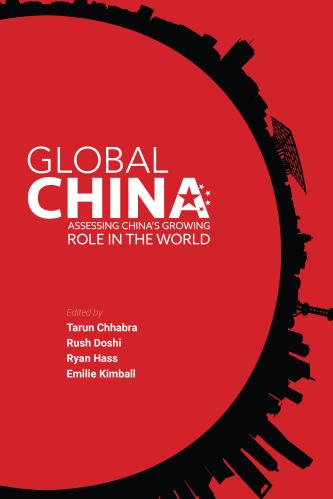

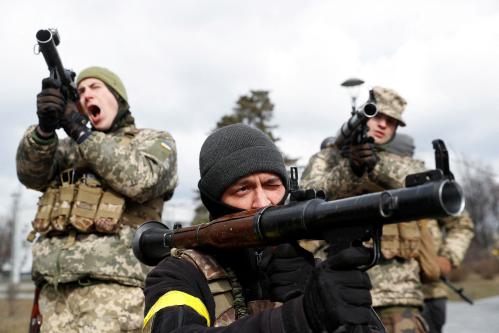
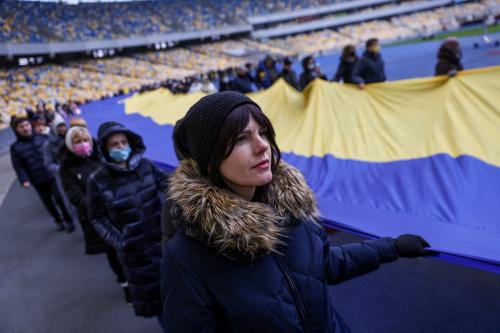



Commentary
Focus on interests, not ideology, to strengthen Taiwan’s standing
April 18, 2022